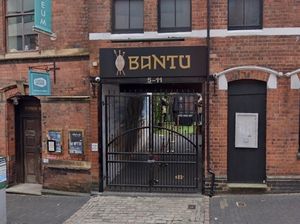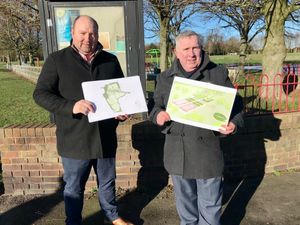Restaurant granted alcohol licence despite fears
A Birmingham city centre restaurant has been granted an alcohol licence, despite objections from residents claiming there has been ‘mass violence’ and ‘sexual activity’ in streets around the venue.

Bantu Bar and Grill on Fleet Street went before the council on Monday with an application to serve alcohol until 10.45pm Monday to Thursday and 11.45pm Friday to Sunday.
However the application was met with strong objections from residents, who claimed the restaurant already operates ‘like a nightclub’ and has caused disruption and difficulties for those who live in the area.
Writing to the licensing sub-committee ahead of a meeting on October 4, one resident, who is a doctor, spoke of how she had been forced to sleep on her sofa for the past 12-18 months due to the level of noise emanating from the venue, causing her medical issues which she says are affecting her wellbeing.
And, speaking at the meeting, another resident Tom Thompson, claimed the restaurant had ‘failed miserably’ to meet basic standards.
“In terms of noise, noxious smells, litter and threats to community safety the applicant has failed miserably to meet the residents requirements,” he said.
“There is strong language taking place, there are sexual activities in the street, there is drinking alcohol in the street, there is drug taking in the street, and there has been mass violence in the street.
“One of the people who made representations to you today is a doctor in the accident and emergency department of a local hospital, who’s been working her socks off due to Covid. She often works nights, she can’t sleep – she comes home from work totally and utterly exhausted and can not sleep.
“She’s told you in her representation that she has to sleep on her settee in a rear room because she can’t sleep in her bedroom in a front room. Life for residents of Islington Gate has been chaotic.”
Also speaking at the meeting, a representative for Bantu pointed to the lack of objections from responsible authorities such as police and environmental health as evidence that there were no real concerns with the application, asking the committee to grant the licence to her client.
“Obviously very key for your considerations will be the attitude of the responsible authorities – this is always our base line and our touch stone for licensing – what do the responsible authorities think about it,” she said.
“You will know in Birmingham that your officers are very hot on this – they always have residents best interests firmly in the front of their minds when they’re looking at applications.
“They know what the risks are, they know what the concerns are, they know the proximity of residential units and they take those factors into account when they’re assessing the application and the likelihood of that proposal to cause impacts on residents and on the licensing objectives, and clearly on this occasion all of the responsible authorities have concluded that this application is not going to cause an unacceptable impact for residents, and that it is acceptable with the conditions that the responsible authorities have proposed.”
In their decision notice the committee said: “The applicant company observed that the written representations made in the report, by residents living nearby, seemed to be based on a fear that the premises would be operating as a nightclub; this was emphatically not the case, as it was to be a restaurant.
“Counsel for the applicant observed that it was West Midlands Police who were the experts on crime and disorder, yet they had found the application satisfactory once some conditions had been agreed. Similarly, the Environmental Health department were the experts on nuisance, particularly noise, and they too had endorsed the application once a dispersal condition was agreed.”





